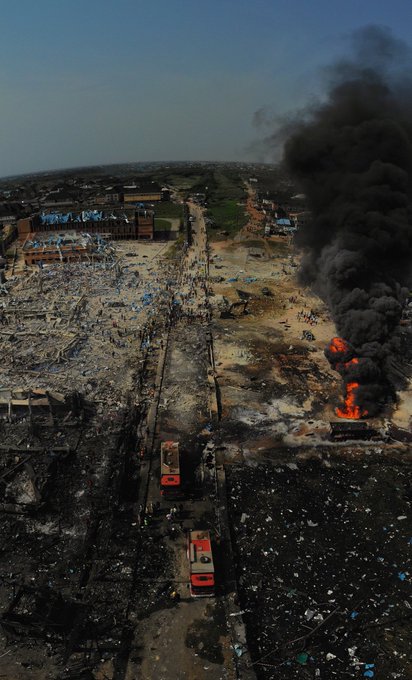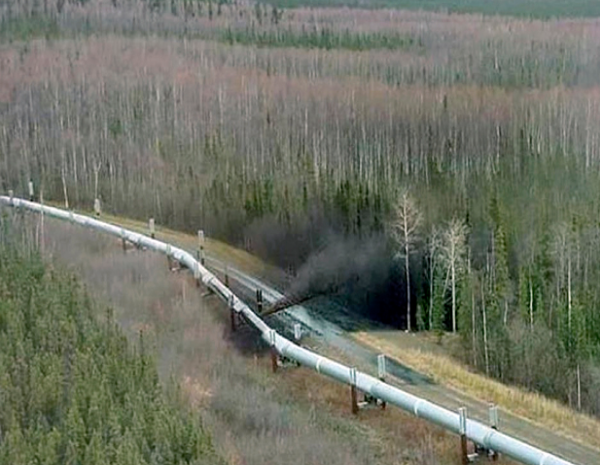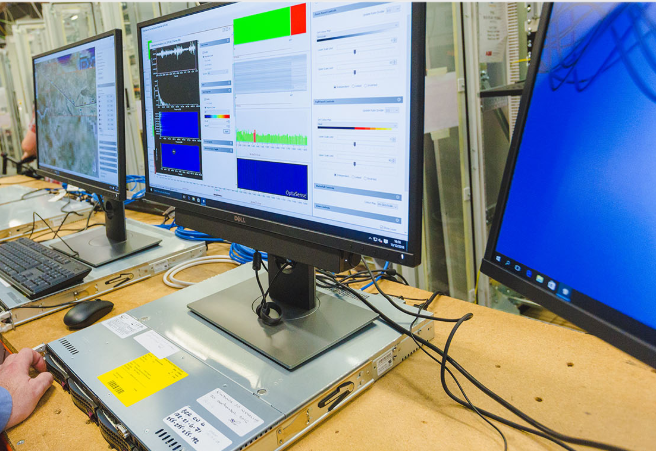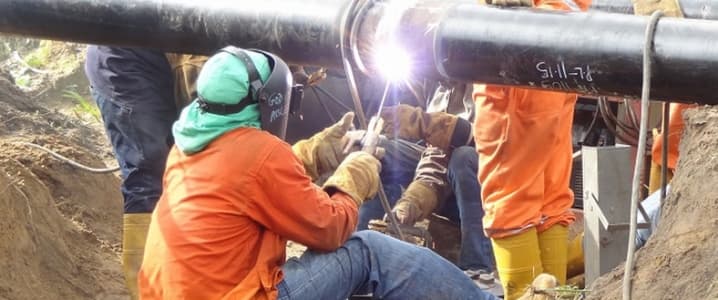On Sunday, the deadly Festac explosion rocked the Abule-Ado area in Lagos. The explosion reportedly claimed the lives of 15 people and destroyed property worth millions of naira.
There are several speculations as to the cause of the explosion. While some residents claim it was a bomb blast, many insisted it was an explosion caused by pipeline leakage.
The Group Managing Director, Nigerian National Petroleum Corporation (NNPC), Mele Kyari has, however, confirmed that it was a indeed pipeline explosion caused by fire from gas cylinder leakages
Second pipeline explosion in Lagos this year
Although, the NNPC has said that the explosion was caused by gas leakages from activities around the area, the ease with which the pipeline caught fire was synonymous with explosion born of pipeline leakage.


This is not the first of its kind this year, because in January, a pipeline exploded around Abule-Egba, Lagos. The explosion reportedly claimed the lives of at least three people and destroyed several houses, vehicles and other properties.
There are different things that can cause a pipeline explosion but one of the most common in Nigeria is pipeline leakage. Considering the gravity of this explosion and the cost it bears on both people and property, it will serve the country best if such explosions are avoided all together. As they say, prevention is always better than cure.
Thus, some tech companies have conceived innovations that could help prevent such disasters. Here are 3 tech startups with varying technologies that can detect leakages.
SensoLeaks – AI Detection
SensoLeak is a startup that has figured out how to use artificial intelligence (AI), machine learning (ML) and internet of things (IoT) to detect pipeline leakage.


Based in Houston, USA, SensoLeak is used globally to diagnose pipelines. The technology uses a system that predicts pipeline leakages and other failures based on a statistical algorithm that processes the data from existing sensors.
The startup can provide real-time reports on abnormalities that could evolve into problems. It also gives 24/7 alerts on outputs appropriate with no human intervention.
Visenti – Acoustic Detection
Visenti is a startup that uses acoustic technology to detect and monitor leakages. This can be used to solve the major problems oil and gas companies face.
The Startup through its LeakView system analyses pressure and vibration data while its acoustic sensors listen to certain frequencies and identify even relatively small leaks.
Based in Singapore, Visenti employs pressure transient sensors, hydrophones and flow meters to spot leaks over short and long distances.
The technology can work on different pipe materials including cement, metal, and plastic. The system sends damage reports and notifications in real-time.
FiOPS – Fiber Optic Detection
FiOPS is a startup that uses fibre optic sensors to check for leakages on a pipeline. The startup leverages the sensors to enable exterior identification of various physical and chemical properties in oil & gas pipeline over long distances.


Based in the US, FiOPS designs and provides continuous asset monitoring and leak detection systems for oil and gas pipelines.
The company offers different solutions which support varying installation options like magnets, straps, and blankets. The technology tracks surface temperature and strains to spot breakdowns, intrusions, and leakages in the pipeline.
Using technology to prevent pipeline leakages in Nigeria
In June Last year, the NNPC reported a 77% increase in the number of cases of oil and fuel vandalism which led to oil leakages. More than 100 points of breach were discovered all of which could have been a potential disaster.
The emergence of various advanced technology has made it possible for breaches in pipelines to be easily detected. However, Nigerian Oil firms including the NNPC appears to lack these technologies and unwilling to acquire them.


Any of the three technologies listed above would have promptly informed the NNPC of the breaches. Thus the damage caused by both the Festac and Abule Egba explosion would have been avoided or considerably minimised.
In Nigeria, there are several startups that use AI but they are clustered in banking and finance, agriculture and health. During my research, I could not find any publicly listed startup in Nigeria proffering a solution using AI or otherwise to solve the problem of pipeline leakages.
In summary, the NNPC and other oil companies in Nigeria need to adopt leading cutting edge practises across the world to prevent pipeline explosion. Also, this explosion is wakeup call for startups in Nigeria to develop innovative responses that will help stop pipeline explosion in Nigeria’s oil and gas industry.






